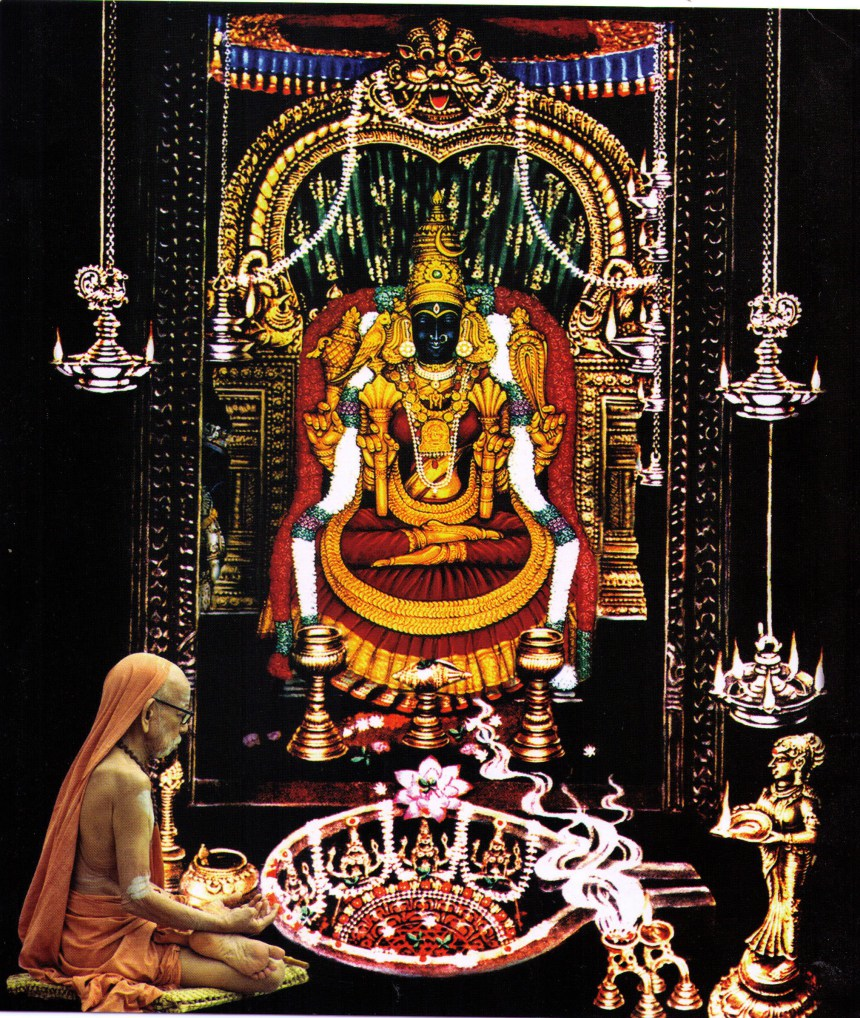In the stanza [in the previous chapter ] we saw that the poet calls Siva "Candravatamsa". It means the god who has the moon for a head ornament. "Candrasekhara" and "Indusekhara" mean the same. Remarkably enough, "Indusekhara" occurs in the titles of two grammatical works. One is Sabdendusekharam, and the other pariposendusekharam. A student who has read grammar up to Sabdendusekharam is considered master of the subject.
If there are thirty books on Siksa, there are any number on grammar. Foremost among them are Panini's sutras, Patanjali's bhasya for it and vararuci's vartika (mentioned earlier). I make this statement in the belief that Vararuci and Katyayana are the same person. Some think that they are not. Vararuci was one of the "Nine gems" of Vikramaditya 's court.
Bhartrhari's Vakyapadiyam is also an important grammatical treatise. There are said to be nine [notable] Sanskrit grammar works, "nava- vyakarana". Hanuman is believed to have learned them from the sun god. Sri Rama praises him as "nava-vyakarana -vetta ". One of these nine works is Aindram authored by Indra. It is said that the basic Tamil grammar book, the Tolkappiyam, follows Aindram.

